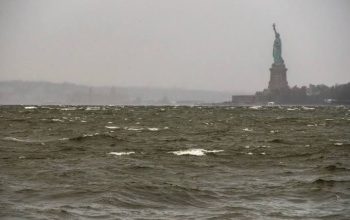As winter sets in across the UK, discussions surrounding the potential for flooding inevitably surface. While experts warn that winter flooding is not a guarantee, it is prudent for individuals and communities to prepare for the eventuality of extreme weather events. Rising temperatures, intensified rainfall, and changing climate patterns have all contributed to a landscape where flooding—whether a minor inconvenience or a catastrophic event—can strike unexpectedly.
Historically, the UK has experienced significant winter floods, with major incidents recorded in 2007, 2013-14, and 2019. These events wreaked havoc on communities, submerging homes and infrastructure and resulting in considerable economic losses. Although meteorological conditions vary from year to year, climate change suggests that the frequency and severity of these types of weather events may increase, heightening the need for preparedness.
According to the Met Office, the current winter forecasts indicate variability, with some regions potentially facing milder weather while others could see heavy precipitation. This unpredictability underscores the importance of being ready for all scenarios, particularly for those residing in flood-prone areas. Local authorities have already begun informing communities about the necessary steps to take in preparing for potential flooding. Initiatives include issuing flood alerts, improving drainage systems, and mapping flood risk zones.
For individuals, there are several measures that can help mitigate flood-related risks. First and foremost, assess your property’s vulnerability. Consider how flood waters might impact your home, and take preventative actions, such as installing flood barriers or ensuring that gutters and drains are clear of debris. Creating an emergency kit that includes essential items—medications, documents, food, water, and a flashlight—can also provide peace of mind.
Moreover, families should develop a flood response plan. This includes determining escape routes, identifying safe locations for family members, and establishing communication channels in case of emergency. Engaging in conversations with neighbours about collective preparedness can foster a sense of community resilience, as neighbours can help each other during crises.

Businesses should not overlook the threat of flooding either; they should conduct risk assessments to protect their operations. Strategies may include revising emergency plans, securing vital inventory and equipment, and investing in insurance policies that cover flood damage. By preparing in advance, businesses can minimize disruption and financial loss.
Most fundamentally, community awareness and collective action play a crucial role in addressing floods. Local councils and environmental agencies must engage with residents to provide clear information about risks and resources available, particularly for vulnerable populations. By working together, communities can bolster their resilience against the impacts of flooding.
In conclusion, while winter flooding may not be a certainty in the UK, the potential for it remains a valid concern. Proactive preparation is essential for safeguarding lives and property. By assessing risks, taking preventative measures, and fostering community collaboration, individuals and businesses can better navigate the uncertainties of winter weather. Now is the time to prepare, ensuring that when faced with potential flooding, we are ready to respond effectively and resiliently.
With winter approaching, don’t wait for the storm to prepare—act now and protect what matters most.



